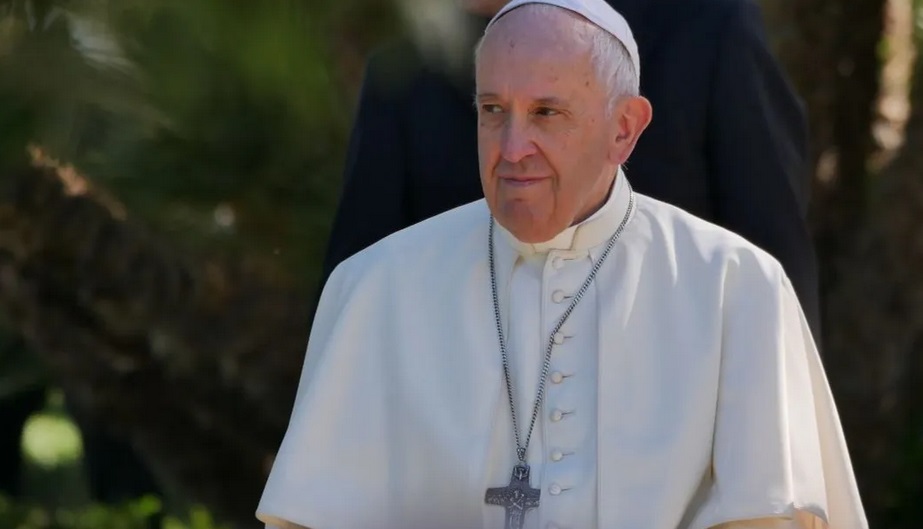Pope Francis shares his hopes for the Church’s future
After 11 years in office, Pope Francis has published his first-ever autobiography. Written with Italian journalist Fabio Marchese Ragona, the new volume is called Life: My Story Through History, which was released on March 19 by HarperCollins Publishers.
Mar 27, 2024

By Loup Besmond de Senneville
After 11 years in office, Pope Francis has published his first-ever autobiography. Written with Italian journalist Fabio Marchese Ragona, the new volume is called Life: My Story Through History, which was released on March 19 by HarperCollins Publishers.
Throughout the book the Pope looks back at significant moments of his life in light of the historical events over the last eight decades. In doing so, he unveils the portrait of a young Argentine Jesuit who became pope and how his ways of thinking have evolved. Francis also looks ahead to what will become of the Catholic Church he has led for over a decade.
“For my part, I continue to nurture a dream for the future: that our Church be gentle, humble, and helpful, with the attributes of God – and therefore also tender, close, and full of compassion,” the 87-year-old writes.
Aware that he is nearing the end of his pontificate, Francis outlines the profile of a more inclusive and open Church, implicitly expressing the difficulties he has faced in his reforms for over 11 years.
“Jesus frequented and often met people living on the margins, in existential peripheries,” Pope Francis explains in the book. This idea was a key concept he expressed during the general congregations, those meetings the cardinals held in the days before the 2013 conclave, which was decisive for his election.
“This is what the Church should do today with members of the LGBTQ+ community, who are often marginalised,” adds the Pope. In this passage, the Latin American Pope reiterates his opposition to any liturgical marriage between people of the same sex but shows support for civil unions.
He also takes a clear-eyed look at the Vatican, a place he tried to visit “as little as possible” when he was still the archbishop of Buenos Aires. “I sincerely preferred to stay among my people, partly because the splendor of these palaces didn’t make me comfortable,” he admits.
“It is true that the Vatican is the last absolute monarchy in Europe and reasoning and court manoeuvres are often conducted there, but these patterns must be definitively abandoned and overcome,” he continues.
In this work, which contains no new revelations, Francis revisits the major episodes of his life, especially before his pontificate. Childhood memories of World War II, the Cold War, the story of his vocation, the fall of the Berlin Wall, and his passion for football are among the many topics the Pope reviews as his life reaches its final chapter.
Two elements will strike readers who delve into this book. First, these autobiographical pages provide certain keys to understanding the Jesuit Pope’s pontificate. One can see how Jorge Mario Bergoglio’s personal experiences influenced the future Francis. For instance, his own family's story, arriving in Argentina as Italian immigrants in the early 20th century, strongly influenced his view on the current migration crisis. The end of World War II influenced his condemnation of nuclear weapons. And Argentina's near-bankruptcy affected his strong criticisms of capitalism.
Secondly, the successor to Benedict XVI is clearly using the book to shape the narrative of his theological and intellectual legacy. The Argentine pope, who in the fall of 2023 appointed one of his close associates, Victor Manuel Fernandez, to head the Dicastery for the Doctrine of the Faith and solidify the pontificate’s theological legacy, offers here a personal account of his own influence on the Church.
“I believe that the ministry of Peter is ad vitam. So, I don’t see any conditions for resigning.” - Pope Francis
Yet, Francis still insists, resignation is absolutely not on the agenda.
“I am sincere,” he affirms. “I have never considered it because, as I had the opportunity to say a few years ago to African Jesuit confreres, I believe that the ministry of Peter is ad vitam. So, I don’t see any conditions for resigning.”
The only case where he would consider stepping down is if “a serious physical impediment” were to occur. “If that were to happen, I wouldn’t be called Pope Emeritus, but simply Bishop Emeritus of Rome, and I would settle in Saint Mary Major to serve as a confessor and give Communion to the sick.”
He continues to say he has “no serious reason to consider resignation”, even though he knows quite well that after his recent hospitalisations, there are “some people” who are hoping he will. --LCI (https://international.la-croix.com)







Total Comments:0